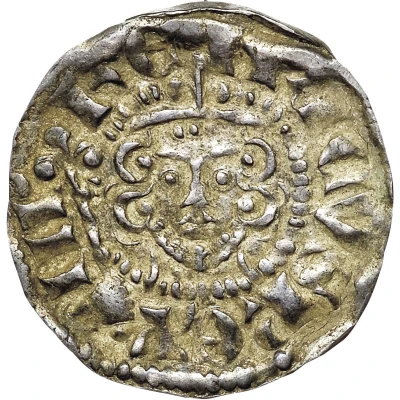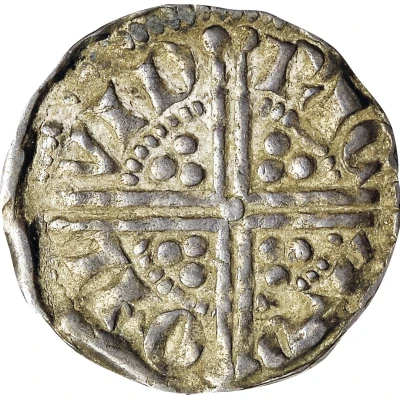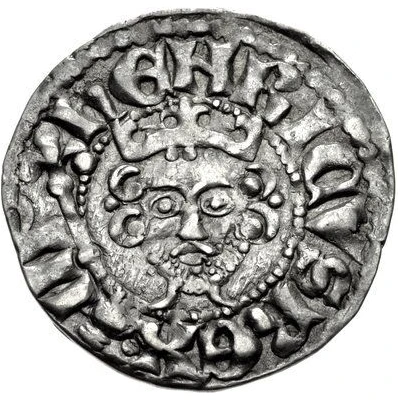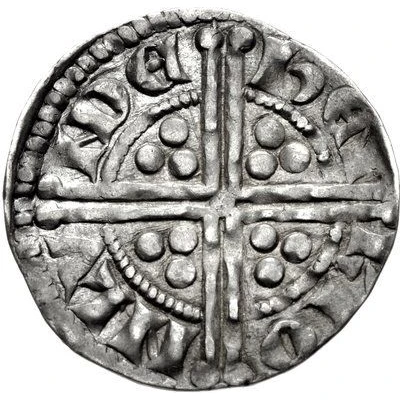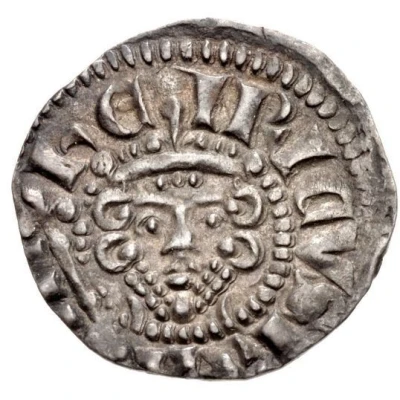
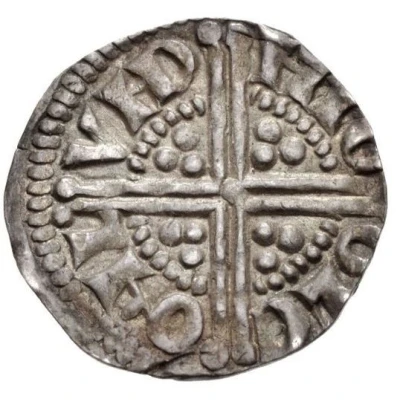

1 Penny - Henry III Long Cross type; class 5c ND
| Silver | 1.54 g | 18 mm |
| Issuer | England (United Kingdom, British Overseas Territories and Crown Dependencies) |
|---|---|
| King | Henry III (1216-1272) |
| Type | Standard circulation coin |
| Years | 1253-1256 |
| Value | 1 Penny (1⁄240) |
| Currency | Pound sterling (1158-1970) |
| Composition | Silver |
| Weight | 1.54 g |
| Diameter | 18 mm |
| Shape | Round (irregular) |
| Technique | Hammered |
| Demonetized | Yes |
| Updated | 2024-10-08 |
| Numista | N#323414 |
|---|---|
| Rarity index | 90% |
Reverse
Legend around voided long cross, with central pellet, triple pellets in quarters.
Script: Latin
Lettering: NIC OLЄ ONL VND
Translation: Nicole of London
Comment
House of Plantagenet (1154-1399), Henry III (1216-1272), Long cross coinage (1247-79), Phase III (Post-provincial), Class 5c.
No mintmark, struck at central and provincial mints, c.1253-c.1256.
By the middle of Henry's reign the Short Cross coinage in circulation was in a poor state and, in 1247, a new coinage was ordered with the cross on the reverse extended to the edge of the coin in an attempt to prevent clipping. The earliest coins (1a) showed the names of neither the mint nor the moneyer. Class 1b includes the name of the mint and from Class 2 onwards all coins show the name of both the mint and the moneyer.
Interesting fact
One interesting fact about the 1 Penny - Henry III (Long Cross type; class 5c) ND (1253-1256) coin is that it was minted during a time of great change in England. Henry III was the first English king to issue a silver penny, which replaced the earlier copper pennies. This change in metal composition was significant because it reflected the growing wealth and influence of England during this period. Additionally, the Long Cross type design on the coin was a new feature that helped to prevent counterfeiting, and it became a standard design element for future English coins.
